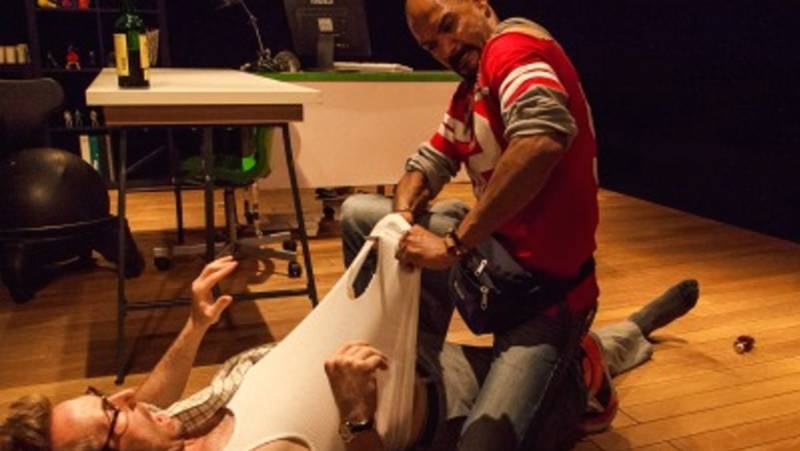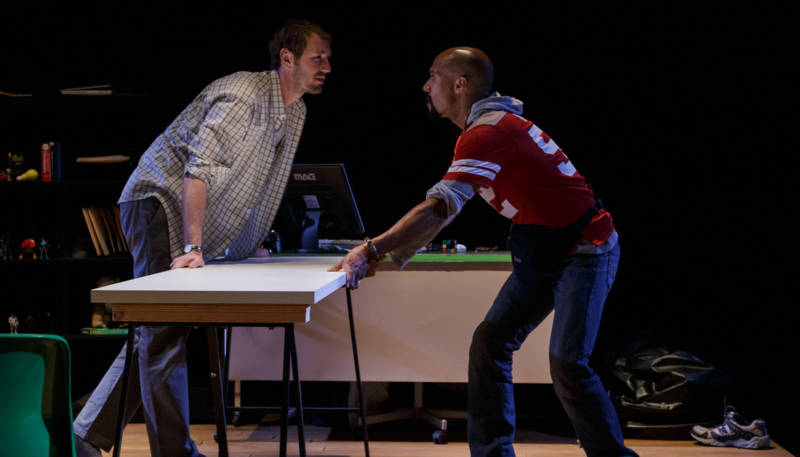For Ken Ingersoll, the CEO of a tech start-up looking to give loans to poor Tenderloin residents, belief is everything. He believed in his company, in its mission, and is his ability to retire at 40. After a number of minor disasters, Ingersoll starts to feel as if he might be cursed. It’s the word Hieronymo Acosta, a recovering alcoholic and exorcist for hire, uses when he suggests that Ingersoll’s problems might be of a more supernatural nature.
It’s an intriguing start to Bennet Fisher’s Campo Maldito, a show from People of Interest theater company that is returning to the Exit Theatre after successful runs at the San Francisco and New York Fringe festivals. The whole of the play’s sly architecture is present in those first, awkward exchanges. In Ingersoll and Acosta, we can instantly read San Francisco’s deepening economic and racial divisions — and its spiritual and technological ones as well.

For many people in the Bay Area, the arrival of the tech revolution, even when it swaths itself in the cloak of social justice, is a nightmare. So when an egun (an ancestral spirit of the Yoruba tradition) starts to terrorize the tech-savvy, man-child Ingersoll, it’s a blast. You can always count on horror to turn the equation of terror around.
And for a while the play floats along on a giddy sense of impending disaster thanks to fine performances by Walker Hare and Luis Vega, and energetic and precise direction from Jesca Prudencio. Yet it all feels rigged — a too neatly contained revenge fantasy that panders to what we think we know about technology, youth, wealth, and gentrification.
The character of Acosta is in many ways nothing more than a Latino magic negro, there to administer life lessons to tortured white boys. His motives are unbelievable, even to the egun. When she asks Acosta what he owes Ingersoll, he has no answer and the play rushes past that lapse in logic as quickly as possible.


